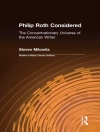Arguing that the commercial stage depended on the unprecedented demographic growth and commercial vibrancy of London to fuel its own development, Jean E. Howard posits a particular synergy between the early modern stage and the city in which it flourished.
In London comedy, place functions as the material arena in which social relations are regulated, urban problems negotiated, and city space rendered socially intelligible. Rather than simply describing London, the stage participated in interpreting it and giving it social meaning. Each chapter of this book focuses on a particular place within the city—the Royal Exchange, the Counters, London’s whorehouses, and its academies of manners—and examines the theater’s role in creating distinctive narratives about each. In these stories, specific locations are transformed into venues defined by particular kinds of interactions, whether between citizen and alien, debtor and creditor, prostitute and client, or dancing master and country gentleman. Collectively, they suggest how city space could be used and by whom, and they make place the arena for addressing pressing urban problems: demographic change and the influx of foreigners and strangers into the city; new ways of making money and losing it; changing gender roles within the metropolis; and the rise of a distinctive ‚town culture‘ in the West End.
Drawing on a wide range of familiar and little-studied plays from four decades of a defining era of theater history, Theater of a City shows how the stage imaginatively shaped and responded to the changing face of early modern London.
Inhaltsverzeichnis
Introduction
1. Staging Commercial London: The Royal Exchange
2. Credit, Incarceration, and Performance: Staging London’s Debtors‘ Prisons
3. (W)holesaling: Bawdy Houses and Whore Plots in the Drama’s Staging of London
4. Ballrooms and Academies: Producing the Cosmopolitan Body in West End London
Epilogue
Notes
Bibliography
Index
Acknowledgments
Über den Autor
Jean E. Howard is George Delacorte Professor in the Humanities at Columbia University. She is the author of The Stage and Social Struggle in Early Modern England and (with Phyllis Rackin) Engendering a Nation: A Feminist Account of Shakespeare’s English Histories. She is general editor of The Bedford Texts and Contexts Shakespeare Series and coeditor (with Stephen Greenblatt, Walter Cohen, and Katharine Eisaman Maus) of The Norton Shakespeare.












